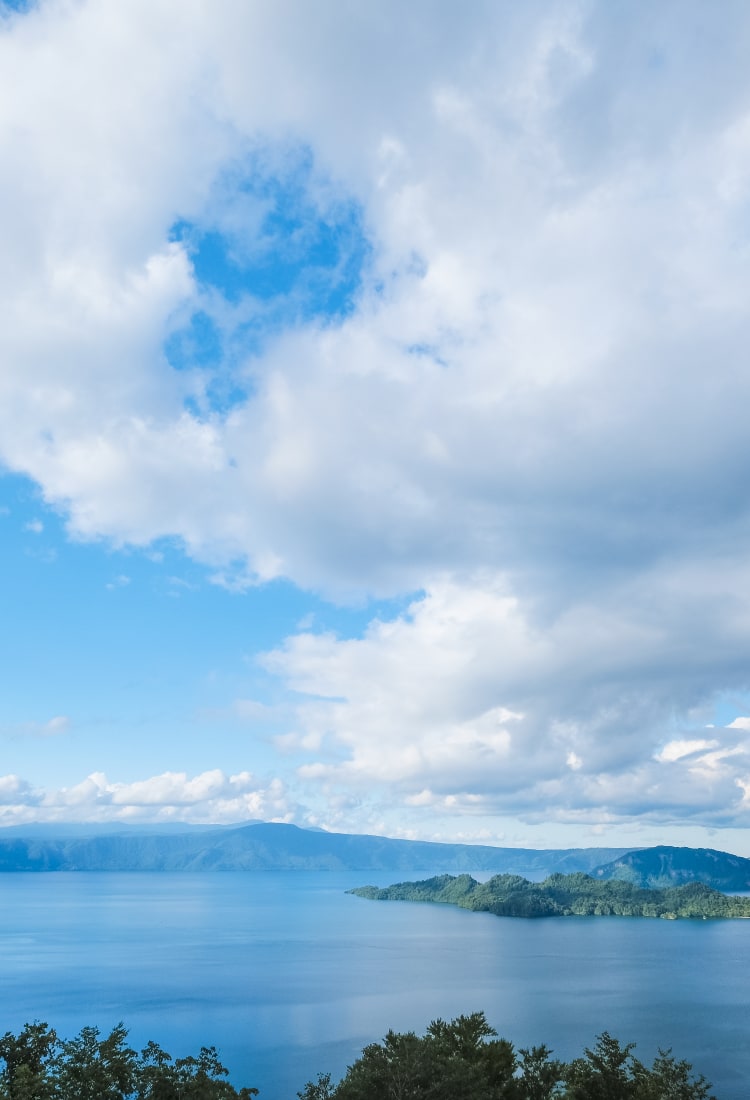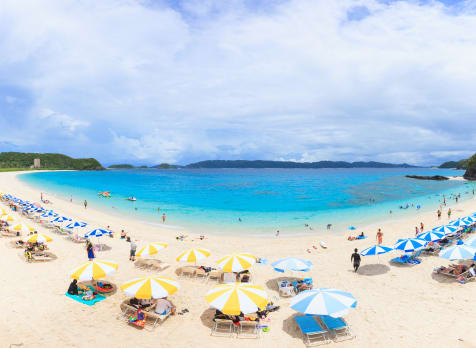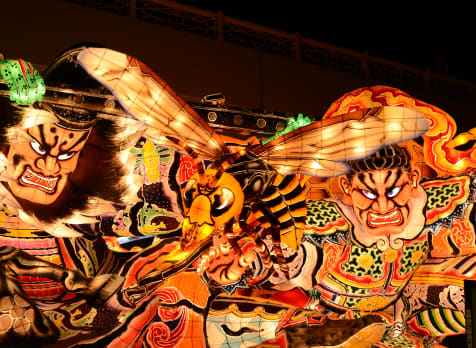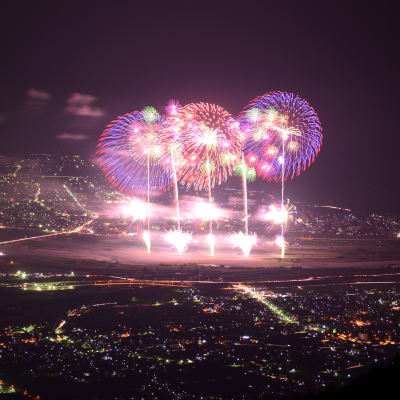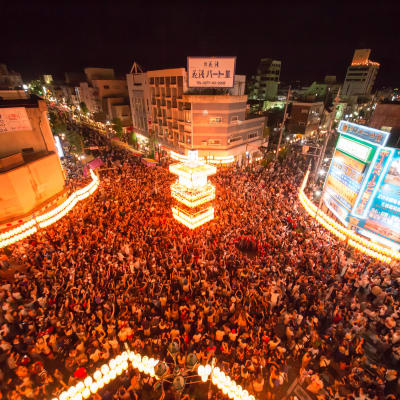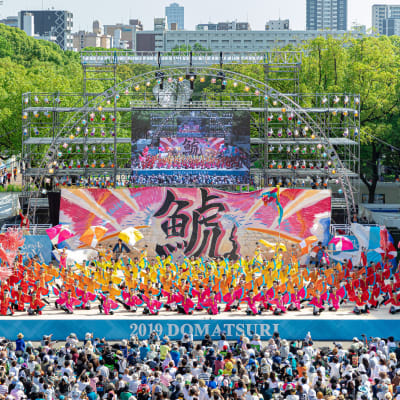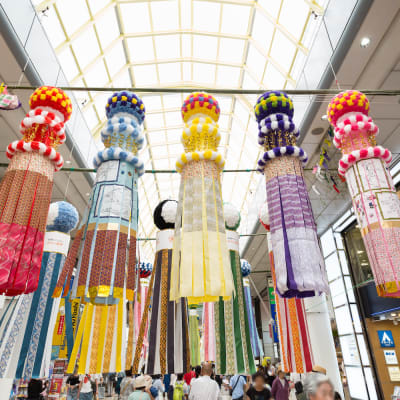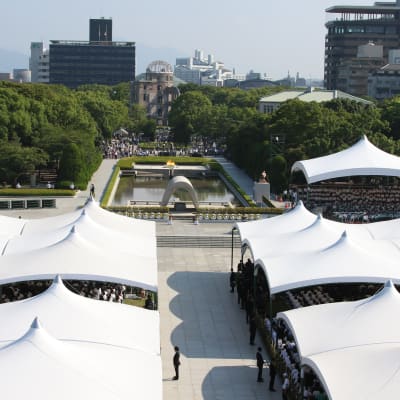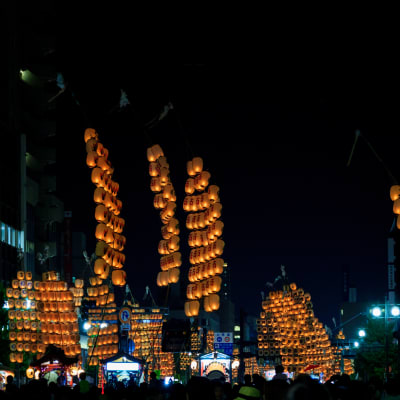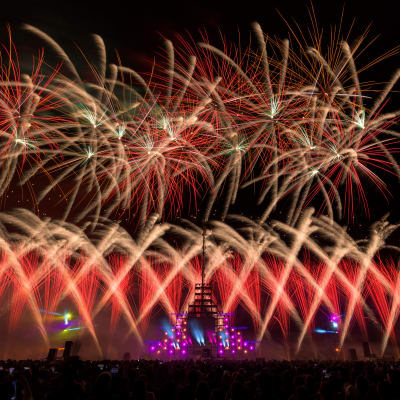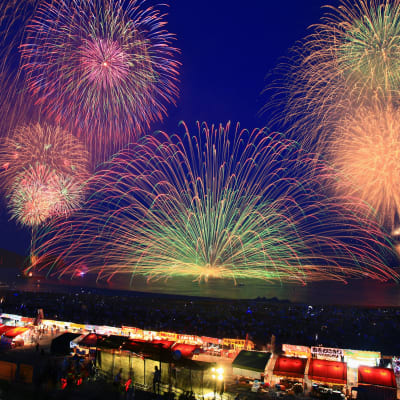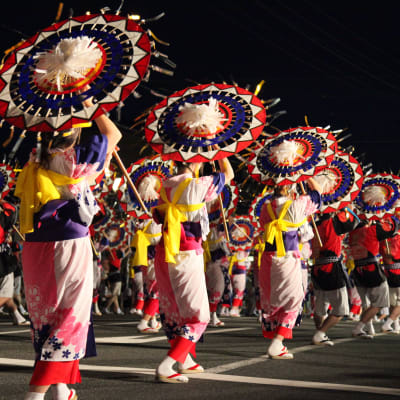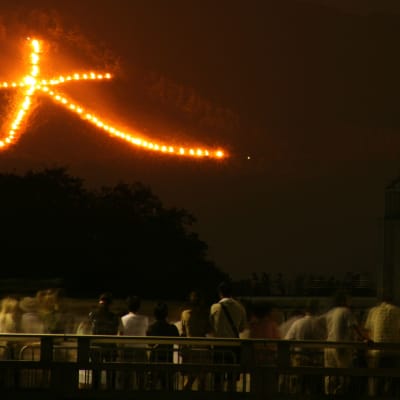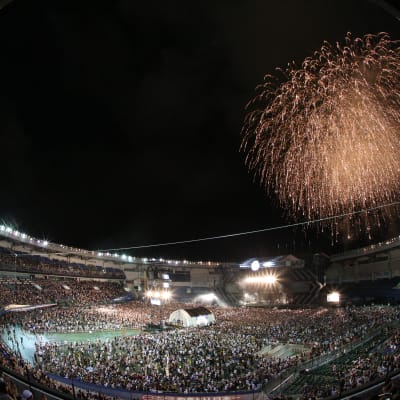Festival magic at the peak of summer
August offers similar summer fare to July with beach trips, highland excursions and water sports all popular pastimes. The difference is the increased heat and the colorful backdrop of summer festivals and firework displays—not uncommon in July, just much more pronounced in August.
Some of the biggest and best festivals include Tokushima's Awa Odori and Aomori's approximately week-long Nebuta Matsuri . Both feature dancing and night illumination in the form of bright floats, fireworks and lanterns—common motifs in August celebrations.
Know Before You Go
- The Bon holiday period in early/mid-August is one of the busiest and most expensive times for Japan travel
- Major fireworks festivals in Japan feature world class displays over the course of several hours
- The Awa Odori and Aomori Nebuta Matsuri are beloved festivals
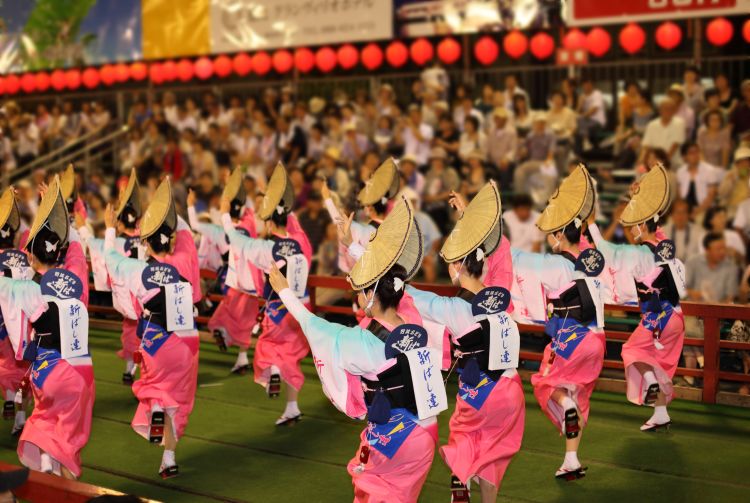
The Awa Odori in Tokushima is one of the headliners of the nationwide August event calendar
A time of wandering spirits
Commonly called Obon in Japanese, the summer holiday period—typically between August 13 and 16—is a time when the spirits of deceased family members are said to return to the realm of the living and revisit their loved ones. Traditionally, it's a time for relatives to gather at their family homes, enjoy festive community dance events, and take family outings. Seats on planes, trains and highway buses sell out in advance, so plan ahead or consider staying in one of the big cities which enjoyer far fewer crowds than usual.
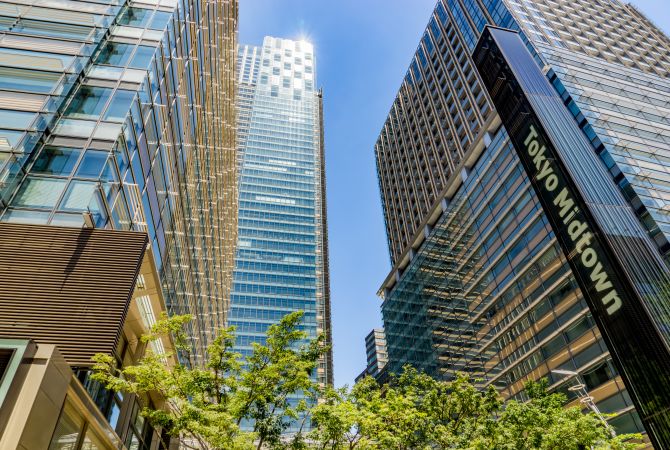
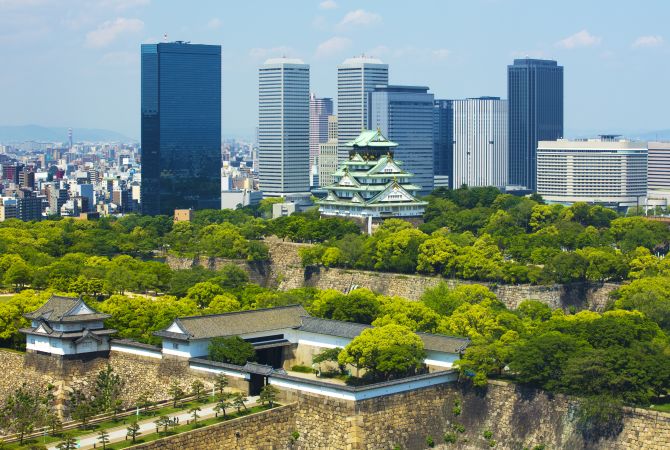
Enjoy less-crowded big city experiences in Osaka and Tokyo during the peak August holiday season
Tohoku's big three
For a definitive summer festival experience, consider touring the Tohoku region in early August. This is when the Sandai Matsuri (three major festivals) of Tohoku take place over multiple days. The iconic festival floats of the Nebuta Matsuri (8/2-7) make this event quite famous of the three. Every night for five days, the human-powered platforms are lit up like giant paper lanterns and paraded through the streets before huge crowds.

Made largely from paper, the Nebuta festival floats are painstakingly beautiful works of art
Around the same time, you can also attend the Tanabata Matsuri (8/6-8) in Sendai , in which long colorful streamers are attached to poles and decorate the city's shopping arcades. In Akita , the Kanto Matsuri (8/3-6) features street parades where participants carry pole-mounted lantern towers that give the festival its name.
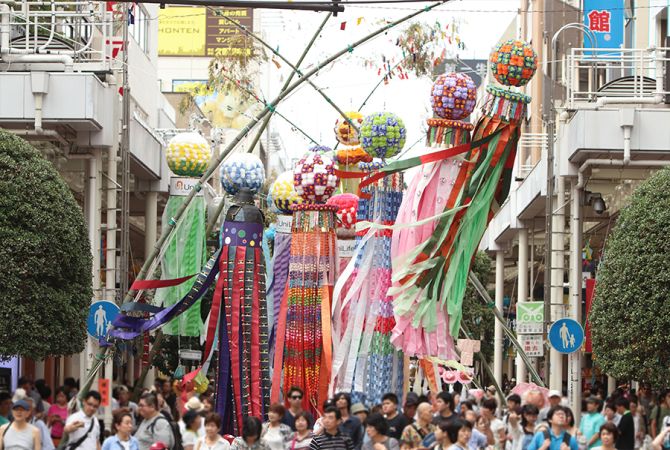

The Tanabata Matsuri and Kanto Matsuri are equally impressive Tohoku festivals
Farther west
On a more serious note, further west in Hiroshima , the day of the atomic bombing on August 6, 1945 is marked with a beautiful and moving ceremony in which glowing lanterns are set adrift on the river running through the Peace Memorial Park and Atomic Bomb Dome .
Marking the end of Obon on August 16, the Kyoto Gozan Okuribi is held adorning the Kyoto hillsides with giant, flaming Chinese characters. Appropriately, the most famous of these is the character meaning "large" on Daimonjiyama in the Higashiyama district.


Remembering the events of August 6, 1945 in Hiroshima and bidding farewell to the spirits of deceased loved ones in Kyoto
Fireworks light up the night
Fireworks are serious business in Japan and July and August are the peak period for them. Major cities like Tokyo and Yokohama host high-profile displays, all showcasing the work of big-name pyrotechnics artists over several hours.
Two smaller cities which stage major events are Nagaoka in Niigata (8/2-3) and Suwa in Nagano (8/15). The latter benefits from a charming lakeside setting that inspired scenes from the 2016 Japanese film, Your Name, or Kimi no Na Wa. Be advised that both locations see visitors in their hundreds of thousands during festival time, so making accommodation and travel arrangements early is a necessity.

The firework display in Suwa is among the largest nationwide
More typical summer pastimes
In August, people head to higher altitudes to enjoy the cooler climate. The national parks of Hokkaido (and other areas), the Japan Alps in central Honshu and destinations like Mt. Daisen in Tottori Prefecture , and the Iya Valley and surrounding mountains in Shikoku, are popular destinations worth considering.
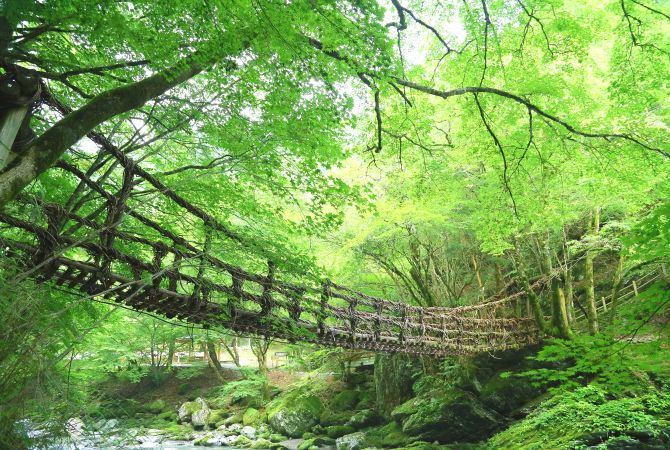

Shady ravines and lofty heights in Shikoku
Okinawa is the Japanese beach holiday destination par excellence, but equally impressive and slightly less well known are the beach resorts and islands of Kyushu . Miyazaki has some surf spots and the trendy Aoshima Beach Park—a leisure complex and event space.
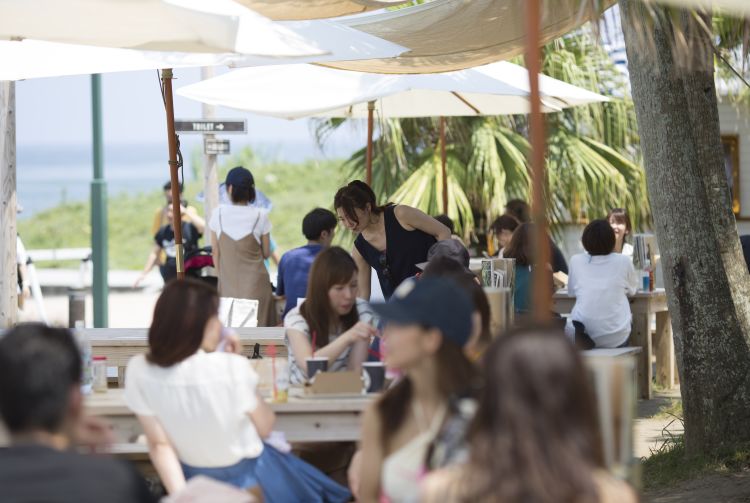
Aoshima Beach Park offers leisurely waterfront dining and events that include open-air cinema evenings, yoga workshops and DJ and live music sessions
Neighboring Kagoshima Prefecture is home to Amami Oshima and the Amami Islands which include Yoron Island and Okinoerabu Island .
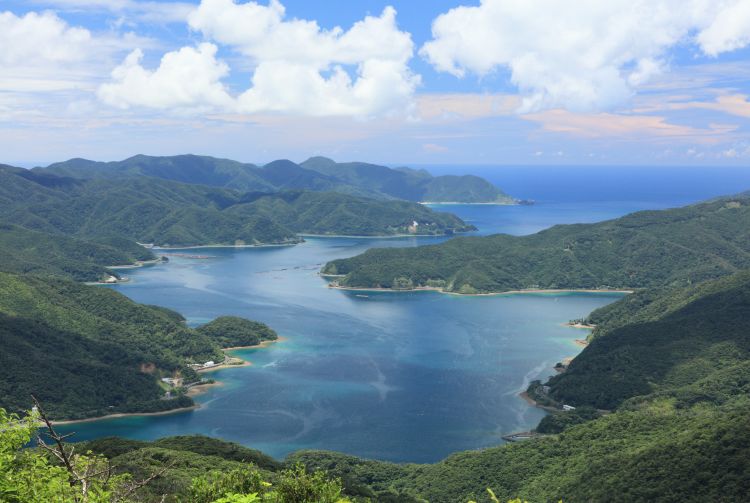
Amami Oshima—miles of coastline and endless beach options


Explore and enjoy the clear waters of Yoron Island




















































